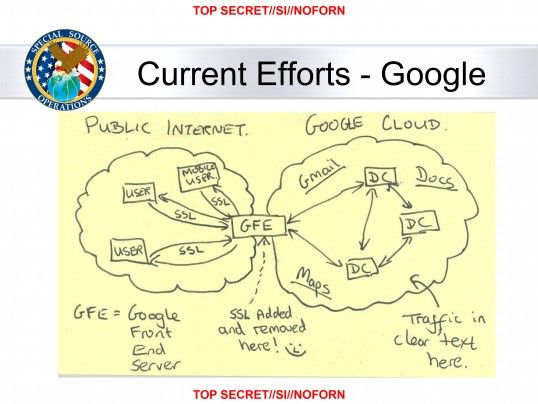Of course we’ve known for years that Beltway Political ‘Journalism’ is all about stenography and who’s in your Rolodex. It’s been portrayed with stunning accuracy in TV and Movies since at least Murphy Brown and was called out to its face by Stephen Colbert at the 2006 White House Correspondents’ Dinner-
Here’s how it works. The President makes decisions. He’s the decider. The press secretary announces those decisions, and you people of the press type those decisions down. Make, announce, type. Just put ’em through a spell check and go home. Get to know your family again. Make love to your wife. Write that novel you got kicking around in your head. You know, the one about the intrepid Washington reporter with the courage to stand up to the administration? You know, fiction!
As Dan Froomkin said contemporaneously and presciently-
Once upon a time, I imagine, there was great value in throwing a party where journalists and politicians could mingle and shmooze and celebrate the things they have in common.
And indeed, if the press and this particular White House had an even moderately functional professional relationship, then a chance to build personal relationships would be a nice bonus.
But it’s not a functional professional relationship. From the president down to the freshest press office intern, this White House seems to delight in not answering even our most basic questions.
So the last thing in the world we need is a big party where the only appropriate mode of communication is sucking up.
Ideally, every chance we get to talk to these people, we should be pumping them for information. And ideally we would be consistent in expressing our frustration with them — not for personal reasons, not for partisan reasons, but because they’re making it nearly impossible for us to do our job, which is to inform the public on what’s going on in the White House and why.
The coziness of the dinner is a perfect example of what’s gone wrong with access journalism. What’s in it for the readers?
Here’s a very comprehensive recap by joanneleon of the reaction from 4/27/13.
But seldom do these shills and sycophants, these mindless mouthpieces proclaim their complicity as nakedly and thoroughly as they do in this piece today by what Charles Pierce of Esquire correctly calls Tiger Beat on the Potomac.
President Obama, off the record
By DYLAN BYERS, Politico
11/1/13 5:02 AM EDT
The president is a voracious consumer of opinion journalism. Most nights, before going to bed, he’ll surf the Internet, reading the columnists whose opinions he values. One of the great privileges of the presidency is that, when so inclined, he can invite these columnists to his home for meetings that can last as long as two-and-a-half hours.
“It’s not an accident who he invites: He reads the people that he thinks matter, and he really likes engaging those people,” said one reporter with knowledge of the meetings. “He reads people carefully – he has a columnist mentality – and he wants to win columnists over,” said another.
…
The off-the-record meetings are held over coffee around the long wooden conference table in the Roosevelt Room, just off the West Wing lobby. Participants vary depending on the issue of the day, but there are regulars.
People like David Brooks, E.J. Dionne, Joe Klein, Eugene Robinson, Ezra Klein, Fred Hiatt, David Ignatius, Jeffrey Goldberg, Thomas Friedman, Jonathan Chait, Wolf Blitzer, and Chuck Todd.
Think you should trust them to represent the interests of their readers, ask tough questions, or report the truth? Read on.
The goal in these get-togethers, participants said, is two-fold: First, the president wants to convince the columnists that he’s right – about the debt ceiling, about health care, about Syria – and that his opponents are wrong.
“The president is thoroughly convinced that the course he has set out is correct, and that his opponents are either wrong-headed or crazy or, in the case of [House Speaker John] Boehner, insufficiently courageous,” said a journalist who has attended off-the-record meetings. “By getting together a group of intelligent people who are going to be writing about him or talking about him, he thinks he can show them how obviously everything he is doing makes sense.”
The second goal is more tactical: By meeting privately with the people who shape national opinion, the president ensures that his points of view will be represented in the media – even if those points of view aren’t directly attributable to him.
…
“He sees columnists as portals,” another journalist who has attended meetings said. “It works – I feel it work with me. It’s almost impossible to spend hours face-to-face with the president, unfiltered, then write a column or go on television without taking his point of view into account.”
…
Reading columnists or watching them on cable news after they’ve attended an off-the-record session at the White House thus becomes a form of tasseography. If you want to know where the president stands on a foreign policy issue, it is often said among Washington’s national security experts, read the latest column by David Ignatius.
…
Said a columnist who has attended multiple meetings, “When you can write your column with absolute surety, knowing that what you’re saying is a true reflection of what the President of the United States is thinking, how do you not do that?”
…
The modern practice of “off-the-record meetings,” however, was set in place by President Bill Clinton and his former press secretary, Mike McCurry.In March of 1996, on a night-flight from Israel to Washington, McCurry came up with the concept of the “psych-background” session, in which reporters were not allowed to record, take notes, or directly attribute Clinton’s remarks – which, that night, ran to almost three hours. The point was simply to let reporters have a better sense of the president’s thinking.
…
The result, which even Clinton himself made fun of in his address at the White House Correspondents’ Dinner later that year, was that his remarks were attributed to an anonymous figure described as “the highest authority.” In the Washington Post, John Harris, now the editor-in-chief of POLITICO, wrote that McCurry had taken “the controversial Washington practice of anonymous sources and ‘background conversations’ to an unprecedented level.”
…
“I’m not going to deny that we hope this informs people’s reporting – the point is to have a good discussion, but also to deepen their understanding of our perspective,” the source familiar with the president’s thinking said.Few columnists see an ethical problem in attending such “off the record” meetings, as they provide a greater understanding of the president’s thinking.
…
Both reporters and columnists believe he prefers talking to people who are thinking about – and willing to be influenced on – grand concepts, rather than those who might pepper him with questions about day-to-day events and process.
…
“The president cares a lot more about the opinions of Fred Hiatt or Tom Friedman than he does about the average U.S. Senator,” said one journalist. “He’s naturally predisposed to analysis. In his own mind, that’s what he is: he’s like us. He wants to be a writer, and so he likes to talk to writers.”



Recent Comments